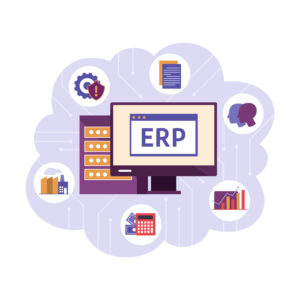
What should businesses know about the technical transition to the Еuro?
- On 14/07/2025
- accounting software, Bulgaria euro changeover, business IT systems, dual pricing, ecommerce adaptation, ERP migration, euro adoption, euro compliance, euro transition, eurozone 2026
On July 8, 2025, the EU Council officially approved Bulgaria’s accession to the Eurozone. This means that as of January 1, 2026, the euro will become the official currency of the country. The Law on the Introduction of the Euro in the Republic of Bulgaria, adopted back in August 2024, is now entering its practical implementation phase.
For businesses, this is not just a regulatory change – it’s an entirely new environment, affecting accounting systems, pricing, electronic payments, contracts, and internal processes. The transition to the euro requires timely and professional technical preparation. Otherwise, the risks include not only operational difficulties but also regulatory penalties.
Key Dates and Transition Milestones
Following the EU Council’s decision on July 8, 2025, a specific timeline begins, during which businesses must adapt:
 August 8, 2025 – Mandatory dual price display in BGN and EUR begins. This applies to all goods and services and will continue until December 31, 2026 (Art. 30 of the law).
August 8, 2025 – Mandatory dual price display in BGN and EUR begins. This applies to all goods and services and will continue until December 31, 2026 (Art. 30 of the law).
January 1, 2026 – The euro replaces the lev as the sole legal tender (Art. 4). All contracts, salaries, invoices, and payments will be converted using the fixed exchange rate: 1.95583 BGN for 1 EUR (Art. 12–13).
January 1–31, 2026 – A dual circulation period is in effect, during which cash payments can be made in BGN, but change must be returned in euro (Art. 17).
Until June 30, 2026 – Banks and “Bulgarian Posts” will exchange BGN to EUR free of charge.
From July 1, 2026 – Currency exchange may incur fees.
December 31, 2026 – The dual price display period ends. All systems must operate entirely in euro.
Business and the Euro: IT Adaptation
From a technological perspective, the transition to the euro requires changes on multiple levels – from data and calculations to user interfaces and external integrations.
Online Stores
E-commerce platforms must support dual price display and allow customers to clearly view prices in both BGN and EUR. Calculations for totals, discounts, and vouchers must follow the new logic. Carts and checkout pages must be redesigned to operate exclusively in euro after January 1, 2026.
API Integrations with Banks, NRA, and Suppliers
All business systems that interact with external providers, financial institutions, or government bodies must support new currency formats. This includes integrations for payments, invoice exchange, tax declarations, and financial reporting. Collaboration with external service providers is often necessary, requiring time and coordination.

ERP and Accounting Software
It is essential to ensure accurate recalculation of all values, including salaries, taxes, accruals, expenses, and depreciation. Software must be configured to work with a fixed exchange rate, with full precision to five decimal places. The transition also involves archiving BGN data for audits, comparisons, and checks.
CRM, Contracts, and Templates
Templates for quotes, contracts, invoices, and internal documents must be updated to reflect accurate euro values, clearly distinguished from BGN amounts. Many templates are automated and pull values from databases, so full compatibility with the new currency fields is essential.
 What We Offer as Your Technology Partner
What We Offer as Your Technology Partner
We are an agency with years of experience in business software and digital solutions integration. While we do not offer legal advice, we provide technical implementation in line with current legal requirements.
Our services include:
- Assessment of existing system readiness
- Adaptation of ERP, accounting, CRM, and e-commerce software
- Implementation of dual price display modules
- Configuration of systems to support fixed exchange rates
- Integration with external systems (banks, state institutions)
- Testing, support, and documentation for the euro transition
You define the scope – we deliver it professionally and on time.
 Why Timing Is Critical
Why Timing Is Critical
Technical systems do not function in isolation. Delays in preparation can cause inconsistencies across related processes such as payments, deliveries, reporting, and tax obligations.
Failure to adapt in time carries not only operational but also legal risks – including the real possibility of fines and loss of trust from clients and partners.
With us, the transition will be clear, accurate, and on time
We are already preparing our clients for this transition. We have the experience, processes, and tools to do the same for you. Contact us today to plan your euro transition on time and with a long-term perspective.




